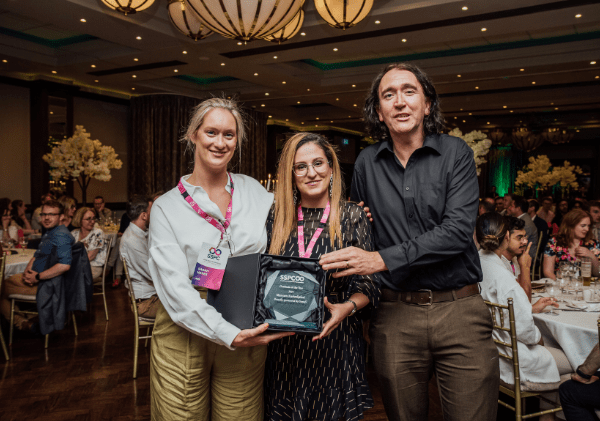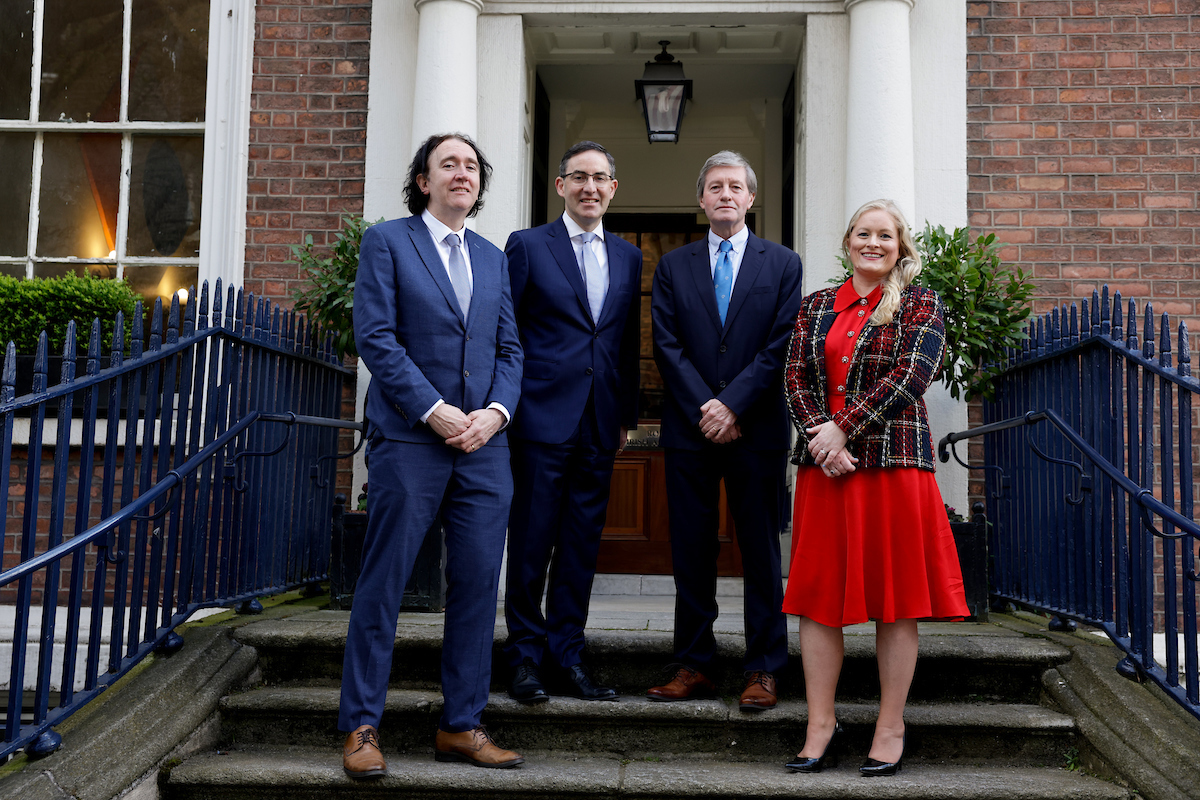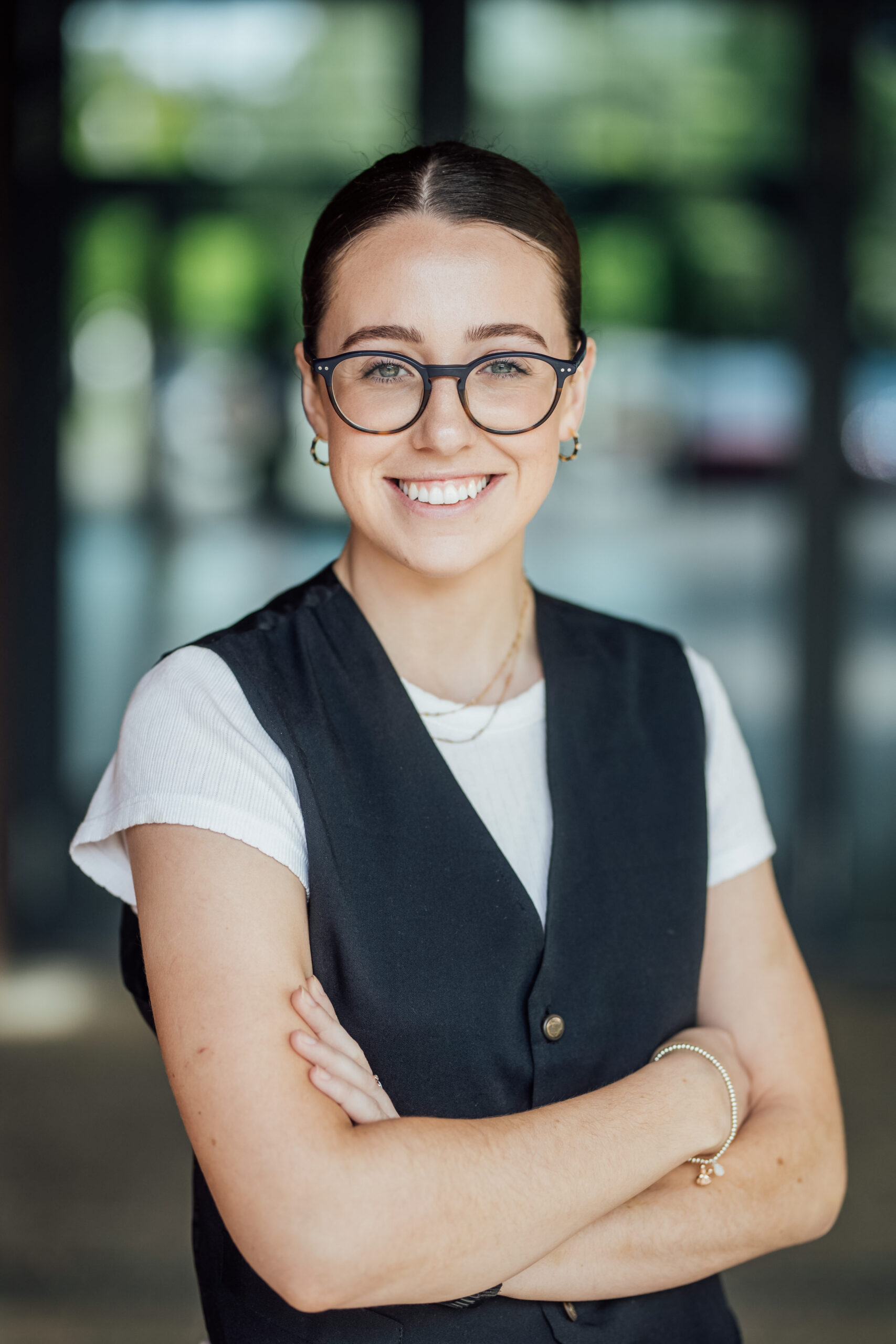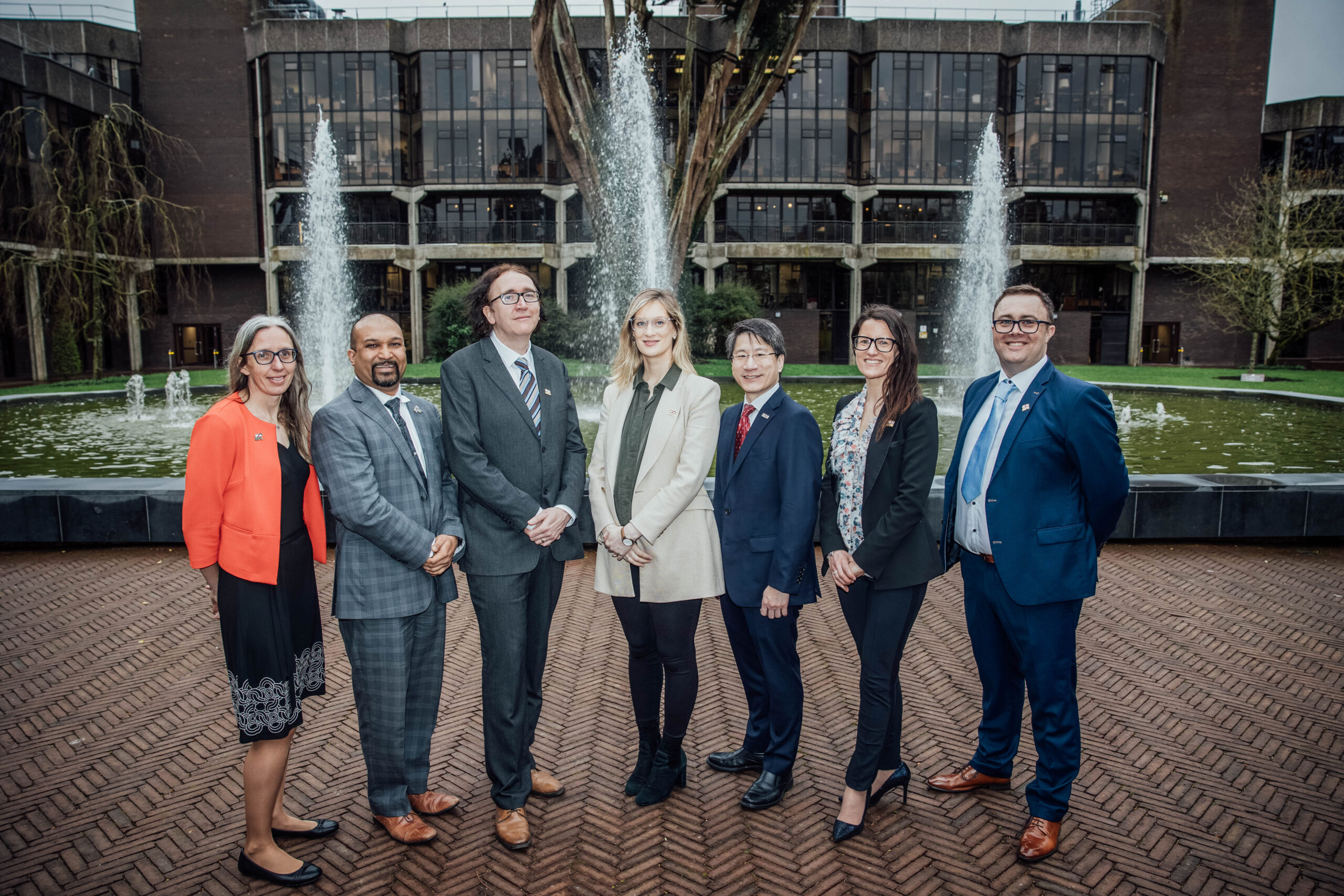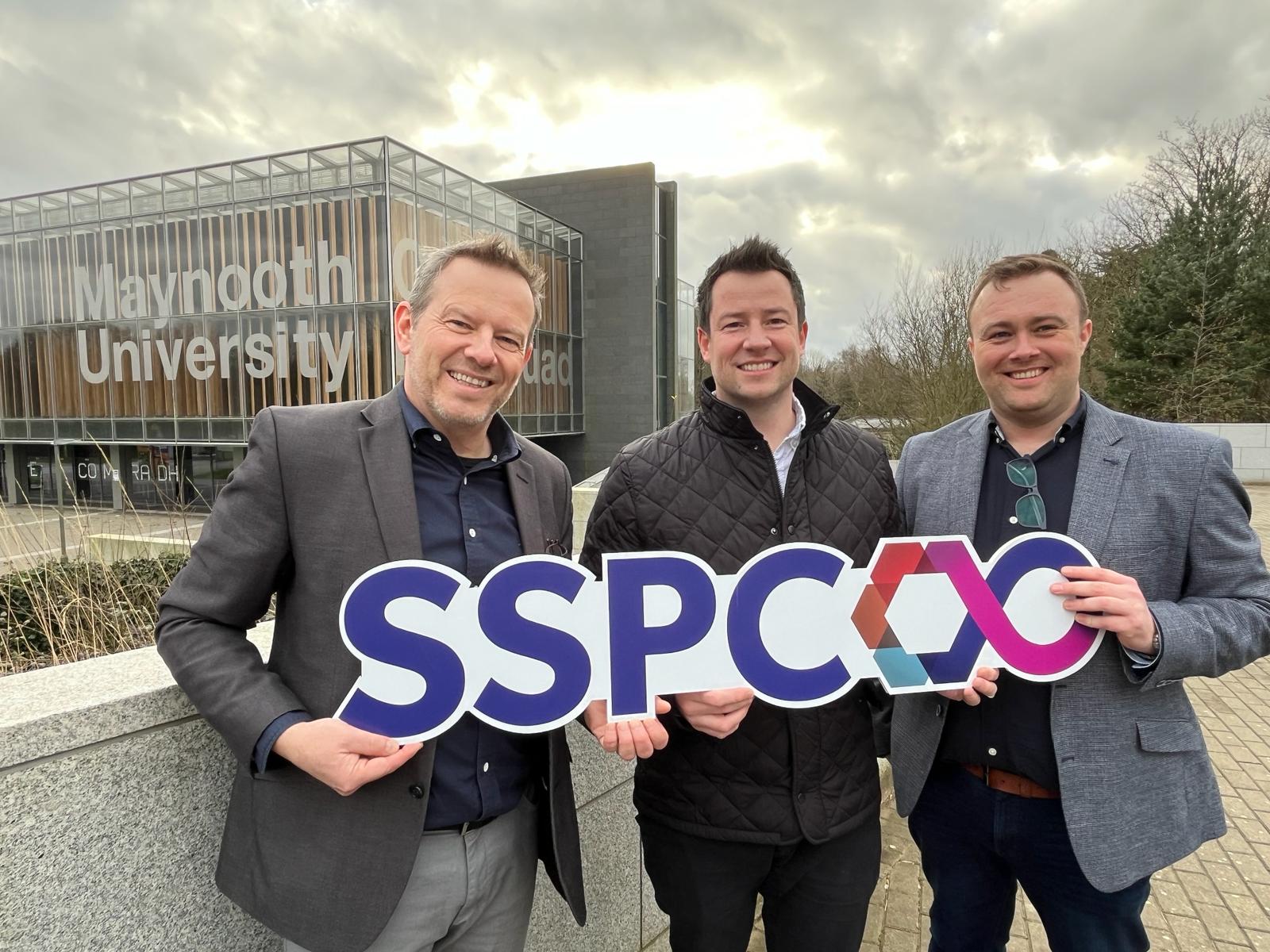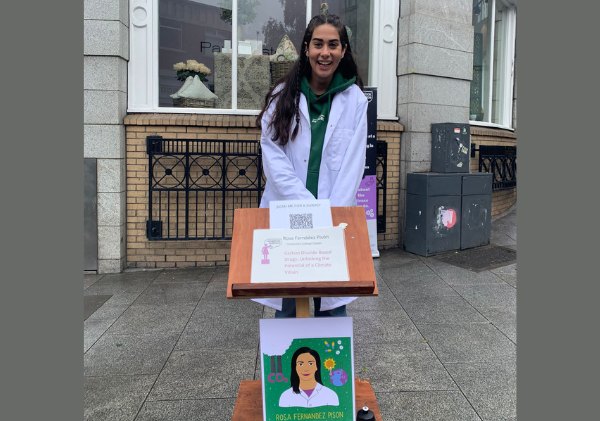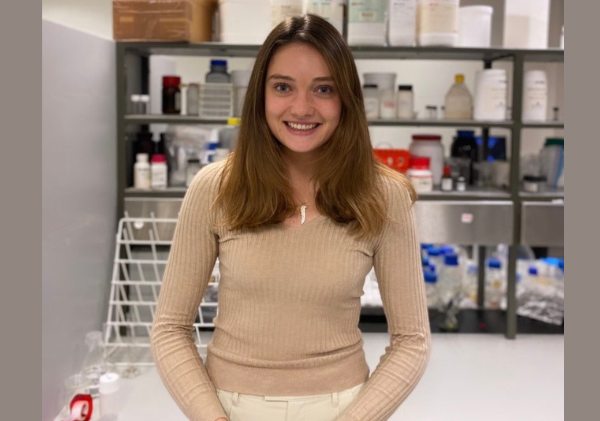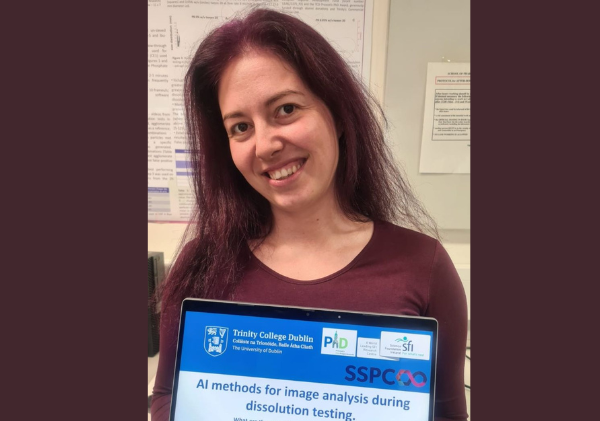Dr Maryam Karimijafari, University of Limerick has been awarded Graduate of the Year 2021 for an exceptional PhD graduate based on her achievements and outputs. Maryam was supervised by Dr Denise Croker and Prof. Gavin Walker, researching the ‘Exploration of Hot Melt Extrusion as a Cocrystal Synthesis Approach’.
Her work was mainly based on developing an industrial approach for transitioning from batch to continuous and green processes, to meet the demand of replacing processes such as solution crystallisation (not environmentally friendly) with solvent-free continuous processes (cheap, controllable, efficient) such as hot melt extrusion. This was part of the US-Ireland Centre-to-Centre project on continuous manufacturing aimed to improve the stability and dissolution rate of APIs via continuous process, working with Queen’s University of Belfast and Rutgers University.
Maryam’s first literature review paper entitled: “Creating cocrystals: a review of pharmaceutical cocrystal preparation routes and applications” was published in Crystal Growth and Design (CGD) journal and was selected as Editors’ choice as one of the highly cited papers of CGD (257 citation since 2018). The review paper covers the different methods of producing cocrystals and harnessing the physical property adjustment provided by cocrystals, with a particular focus on emerging trends in these areas.
The first phase of the her PhD project was to optimize the process and formulation factors of hot melt extrusion of APIs with low aqueous solubility. The candidate API was formulated as cocrystal with improved physicochemical properties while the HME process was optimized using a design of experiment (DoE) approach. The work was orally presented in Eu-PAT9, 2018 conference in Manchester and published in International Journal of Pharmaceutics.
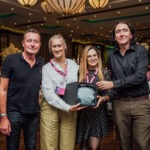
Pic. Brian Arthur
Maryam pictured with supervisor Prof. Gavin Walker, Dr Sarah Hayes, SSPC COO and SSPC Director Prof Damien Thompson
In an attempt to implement in-line monitoring of the cocrystal formation, Raman spectroscopy was selected as Process Analytical Technology (PAT) during HME process.
Therefore, previous published model drug system (ibuprofen-nicotinamide) was selected for further studies. After scaling up the process to larger volumes, a new set of experiments were designed to find the critical process parameters involved in HME to achieve highest cocrystal yield. Partial Least Square (PLS) regression was applied to build a predictive model for cocrystallization yield in HME process. By implementing two Raman probes simultaneously in HME barrel, the better mechanistic understanding of cocrystal formation along the barrel was represented which to the best of our knowledge had not been reported in the literature.
She also worked on ciprofloxacin as a broad spectrum antibiotic that has a wide range of applications in bacterial infection treatment, especially respiratory infections. Overall, this study revealed the potential of mechanochemical synthesis approaches especially HME in combination with DoE approach for determining the critical process parameters and process optimization. Moreover, this study showed that cocrystallization can enhance the aqueous solubility of ciprofloxacin.
Maryam first introduction to SSPC was when she was a Masters by research student in the Physics Department at University of Limerick back in 2015 and she volunteered for participating in an Education and Public Engagement activity. She was amazed by the level of positive communication and learning opportunities within the Centre.
Now a postdoctoral researcher, Maryam looks back at how SSPC contributed to what was a very positive experience. She received much support for her maternity leave as a PhD researcher. Being mentored by Prof. Gavin Walker, Bernal chair of pharmaceutical powder processing with immense experience in process optimization and Dr Denise Croker, Chemical Sciences, Faculty of Science and Engineering, who had an open-door policy, patience and great crystallisation knowledge was an immense opportunity for catalysing the progress of her research. Also, being able to use the SSPC state-of-the-art labs in Bernal institute was a huge advantage of being part of the Centre. Having representatives from industrial partners at regular meetings enhanced the interaction between academic and industrial researchers with fruitful discussions and higher chances of future collaborations.
She also had the opportunity to be involved in Education and Public Engagement activities meant there was plenty of learning opportunity plus fun time out of the lab to learn how to communicate with different types of audiences.
Many thanks to Sanofi for sponsoring this award.

